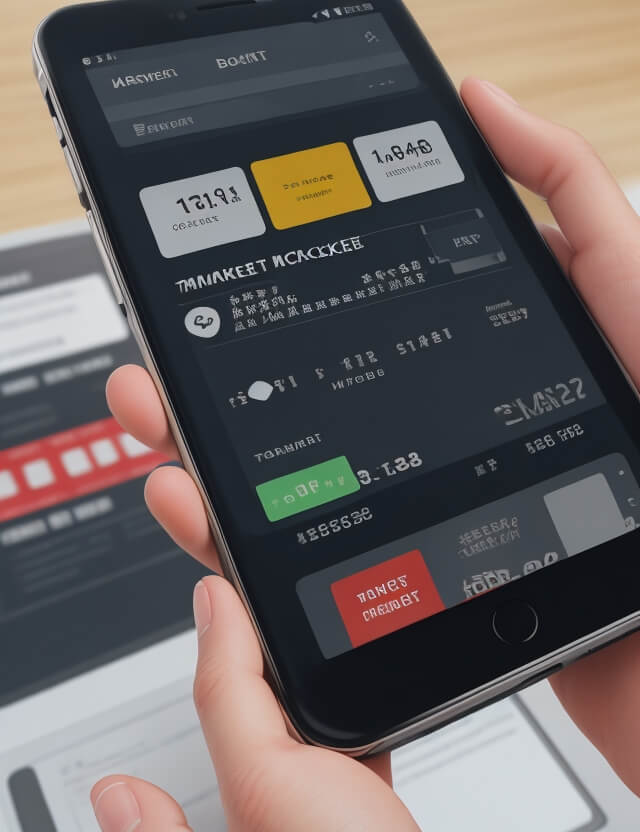
Engineering ProjectsAndroid ProjectsBsc-ITDiplomaIOS ProjectsIT ProjectsMsc-IT Projects
Mobile Ticket Booking System Project – Travel with M-Ticket
Introduction
M-Ticket is not just a mobile application; it’s a game-changer in the world of local train ticket booking in Mumbai. This comprehensive guide aims to delve into the various features and benefits of the M-Ticket app, simplifying your train travel experience.

Modules & Functionality
The M-Ticket application comprises three primary modules:
- Registration: The initial step that involves entering basic personal details to create a user profile.
- Ticket Checker: Validates the e-tickets and ensures their authenticity.
- Login: Serves as the gateway to various in-app features, detailed below.
Internal Functions within the Login Module
- Check Time Table: Enables users to view local train timetables between two stations.
- Purchase Ticket: Facilitates the booking of tickets with just a few clicks.
- Show Ticket: Displays the most recently purchased ticket for the user.
- Refill Account: Offers an easy method to recharge the account using a 14-digit code.
- Check Balance: Keeps users informed about the remaining balance in their account.
Key Features
- User-Friendly Interface: Intuitive design that provides a smooth user experience.
- Modular Design: Allows users to install only the necessary modules on their device.
- Effortless Recharge: Just like mobile recharge, refill your M-Ticket account with a 14-digit code.
- Dual-Line Booking: Supports ticket booking for both Western and Central lines.
- Client-Server Architecture: A single servlet can serve requests from multiple clients, making the app scalable.
- Eco-Friendly: Emphasizes the use of e-tickets, contributing to a greener environment.
Conclusion
The M-Ticket app is revolutionizing the way people in Mumbai interact with their local train system. From user-friendly features to eco-friendly practices, the app is designed to make your local train journeys as hassle-free as possible.
Sample Code
from flask import Flask, request, jsonify
app = Flask(__name__)
# Simulated database
users = {}
tickets = {}
balances = {}
@app.route('/register', methods=['POST'])
def register():
username = request.json.get('username')
password = request.json.get('password')
if username in users:
return jsonify({"error": "Username already exists"}), 400
users[username] = password
balances[username] = 0
return jsonify({"success": "User registered"}), 200
@app.route('/login', methods=['POST'])
def login():
username = request.json.get('username')
password = request.json.get('password')
if username in users and users[username] == password:
return jsonify({"success": "Logged in"}), 200
return jsonify({"error": "Invalid username or password"}), 400
@app.route('/purchase_ticket', methods=['POST'])
def purchase_ticket():
username = request.json.get('username')
ticket_price = 50 # Sample ticket price
if balances[username] >= ticket_price:
balances[username] -= ticket_price
tickets[username] = "Valid Ticket"
return jsonify({"success": "Ticket purchased"}), 200
else:
return jsonify({"error": "Insufficient balance"}), 400
@app.route('/show_ticket', methods=['GET'])
def show_ticket():
username = request.args.get('username')
return jsonify({"ticket": tickets.get(username, "No ticket purchased")}), 200
@app.route('/refill_account', methods=['POST'])
def refill_account():
username = request.json.get('username')
refill_amount = request.json.get('refill_amount')
balances[username] += refill_amount
return jsonify({"success": f"Account refilled with {refill_amount}"}), 200
@app.route('/check_balance', methods=['GET'])
def check_balance():
username = request.args.get('username')
return jsonify({"balance": balances.get(username, 0)}), 200
if __name__ == '__main__':
app.run(debug=True)
Click to rate this post!
[Total: 0 Average: 0]
In order to download the PDF, You must follow on Youtube. Once done, Click on Submit
Follow On YoutubeSubscribed? Click on Confirm
Download Mobile Ticket Booking System Project – Travel with M-Ticket PDF






